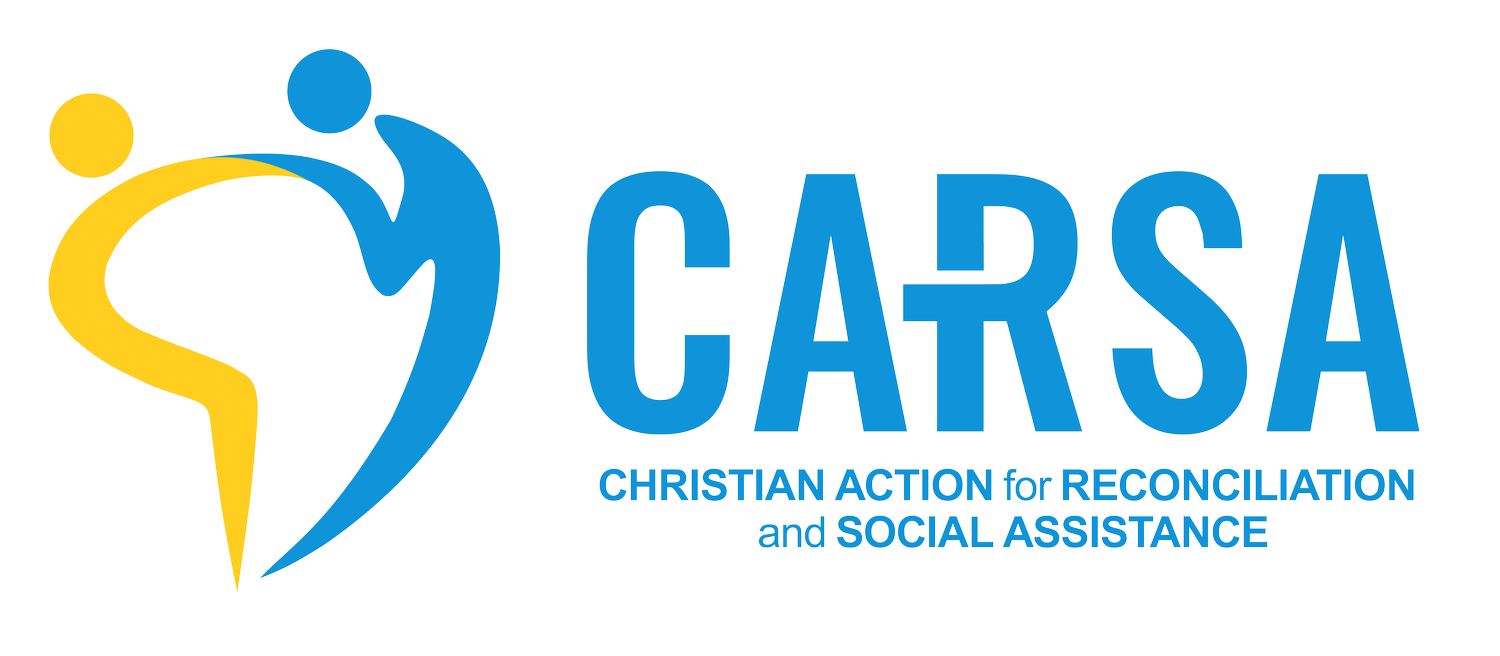My willingness to forgive was stimulated by CARSA’s Reconciliation Workshop
“I never rested in my heart. Every time I was in the community and walked by the people, they looked at me. This got me scared, and I thought they were seeing the killer in me,” Evariste said.
Evariste Sibomana, 54, from Nyarusange Sector in Muhanga District, was sentenced for 12 years for killing the mother of Rwamucyo Narcisse during the 1994 genocide against Tutsi, and he does not regret having gone to jail because he “deserved it.”
After serving the jail term, he returned to the community. The process of reintegration was not a walkover, and his heart was restless until he was invited to attend CARSA’s Reconciliation Workshop to start a path of forgiveness and reconciliation and getting to terms with his past.
In the workshop, Evariste met with genocide survivors, including Narcisse Rwamucyo whose mother he had killed. At one of the meetings, Evariste got the courage to apologize.
“I was not free; I was a prisoner outside of the prison. My heart was restless until I was able to approach Narcisse and reveal to him a whole story about how I killed his mother with my hands and found forgiveness. From then on, my heart was released,” he said.
Evariste says that the forgiveness was a miracle since it enabled him to live in harmony with Narcisse and with a restful heart in the community.
On his side, Rwamucyo Narcisse had never thought of forgiving anyone; he had rather had sworn to revenge Evariste who was responsible for his family’s massacre.
“I can’t explain how I hated this brother Evariste so, whenever I saw him or anybody from his family, I only thought to do an act of revenge, but I was hindered by finding him always alone while I planned to exterminate his entire family to ensure he pays all the cost of what he had done. Meanwhile, I came to join the security service (local defense) and handed me a gun to protect people and for me that could help me to annihilate his family,” said Narcisse.
He lived a lonely, hateful, and resentful life until he was called to attend the Reconciliation Workshop and later joined it where he sat face-to-face with his perpetrators including Evariste.
Narcisse says that the first two days were fruitless but at the third one, he started feeling the urge to break the swollen wounds in his heart.
“As the days of Empower moved on the teachings bared good fruits inside my heart and I began to be acceptant. I remember the word from Isaiah that says that it’s better to forgive a person although he did not make any step of apologizing, this verse opened my mind and is just a starting point of my reconciliation journey,” Narcisse said.
This helped him to heal slowly and the meetings continued until he was able to release the pain and forgive his perpetrators.
“I had never forgiven others nor myself but when he asked me for forgiveness, I did so willingly because of the healing I had found in me even when I didn’t know how this mercy came about,” Narcisse said.
Though both Evariste and Narcisse suffered from the same pain of their past, today they are a living example of reconciliation among genocide survivors and perpetrators, thanks to the EMPOWER Program run by CARSA in joint partnership with Compelled By Love, an Australian-based organization.
Evariste Sibomana and Rwamucyo Narcisse
Evariste Sibomana and Rwamucyo Narcisse sitting together at Evariste’s home
All members of CARSA’s Reconciliation Cell Group in Nyarusange-Muhanga
Evariste Sibomana and Rwamucyo Narcisse with cow that was given through the COW FOR PEACE PROJECT/.




